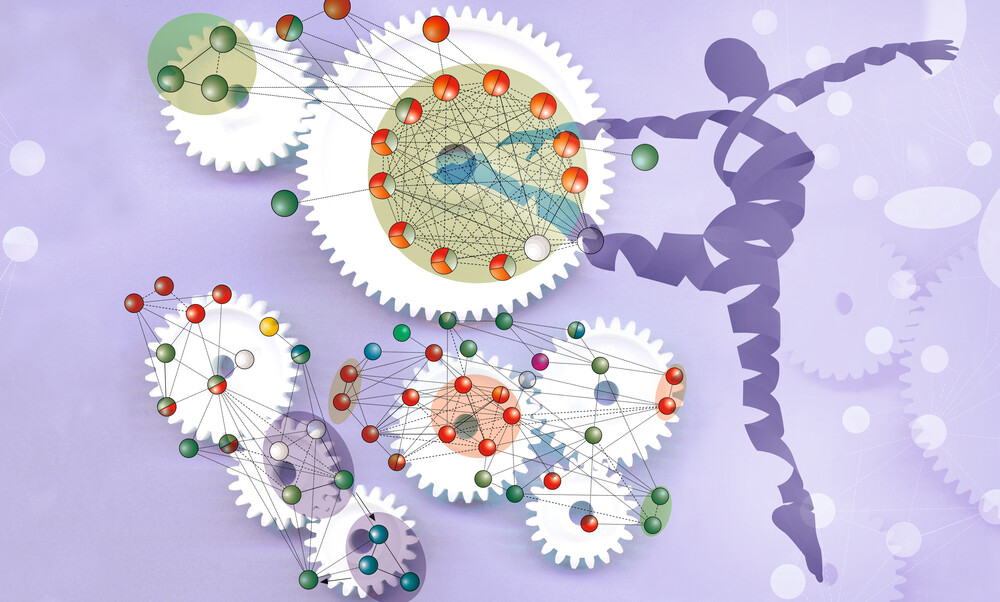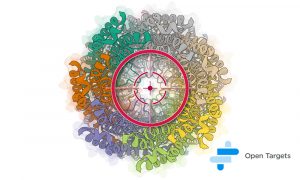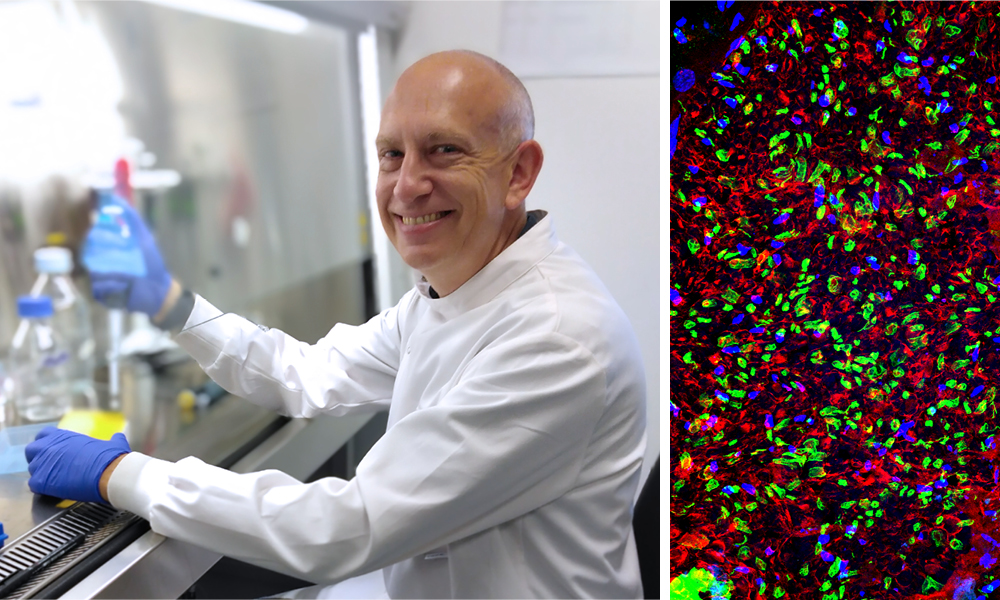
Innovation rising
Nurturing the process from the lab bench to new therapeutics through collaborations.

In 2021, EMBL scientists joined forces with industry scientists via multiple partnerships that aimed to further research and spur innovative solutions to tackle human disease and increase biotechnology and agricultural impacts.
In a collaboration set up by EMBLEM in 2017, EMBL and GSK Cellzome continued to expand their alliance in a bid to use cutting-edge technologies and world-class science to develop better drugs. In 2021, this collaboration initiated eight new joint projects with a focus on wet and dry multi-omics and spatial omics analysis methods to enable mechanistic insights into target and drug function. The collaboration’s 2021 Science Day relayed the new scientific directions at both organisations, invigorated ideas for future collaborative projects, and featured the highly successful projects carried out in the joint fellowship programme.

The public-private partnership Open Targets expanded to five partners in 2021 to include EMBL-EBI, the Wellcome Sanger Institute, GSK, Bristol Myers Squibb, and Sanofi. The partnership uses information from genome sequencing and genetics studies to systematically improve identification and prioritisation of drug targets for safe, effective medicines for use in neurobiology, cancer, and other human health conditions. Open Targets is committed to openly sharing experimental data and information gathered within its consortium with the broader scientific community.
In 2021, while rewriting its computational target validation platform, the platform shared 2.72 terabytes of data, resulting in several significant publications. One such paper identified 1,067 previously unidentified proteins of the human proteome – something that will contribute significantly to advancing an emerging drug modality known as proteolysis-targeting chimeras (PROTACs). These show promise in treating diseases where current therapeutics are inadequate, for example, in several cancers and neurological conditions.
In 2021, EMBL entered into a collaboration with Enzymicals, a biocatalyst developer and producer, to leverage a novel computational tool developed by the Thornton group at EMBL-EBI, Transform-MinER. With the technical expertise at Enzymicals, this sophisticated computational tool will accelerate the development of novel, valuable biosynthetic pathways of high-impact chemicals. Transform-MinER has the potential to replace inefficient and energy-intensive traditional chemical syntheses with green biotechnology that produce specialty and commodity chemicals, medicines, flavours, or fragrances in an environmental- and consumer-friendly way.
EMBL is also part of beLAB2122, a new industry-academia partnership in the Rhine-Main-Neckar region launched in 2021 that will accelerate research for promising drugs. EMBL and four other universities joined up with Evotec and Bristol Myers Squibb to advance innovative research in therapeutics and related technologies. The idea is based on Evotec’s BRIDGE model aiming to translate early-stage work from academia into drugs and therapies. This is the first such BRIDGE collaboration in Germany.

“In 2021, it was great to be supported by EMBLEM and move closer to our dream of reducing environmental pollution by reaching out and signing commercial deals with industrial partners.”
— Jon Tyzack, Senior Software Engineer in the Thornton Group, EMBL-EBI, whose software identifies green and clean ways to make chemicals with enzymes

“The outstanding environment for scientific innovation and collaboration at EMBL fuels not only academic discoveries but also has an impact on international development of medicines. The EMBL-GSK Cellzome collaboration is just one example, where shared projects and lively discussions led to ways to apply emerging technologies and develop new therapies.”
– Louise Modis, Chief Scientific Officer at Mogrify; PhD at EMBL, 1995-1999

“Cutting-edge technologies are revolutionising our understanding of biology but depend on strategic investment. Public and private sectors need to join forces to enable the transformational potential that research has on our lives.”
– Giovanna Bergamini, Senior Director, Cellzome, GSK; EMBL postdoc, 1999-2002

